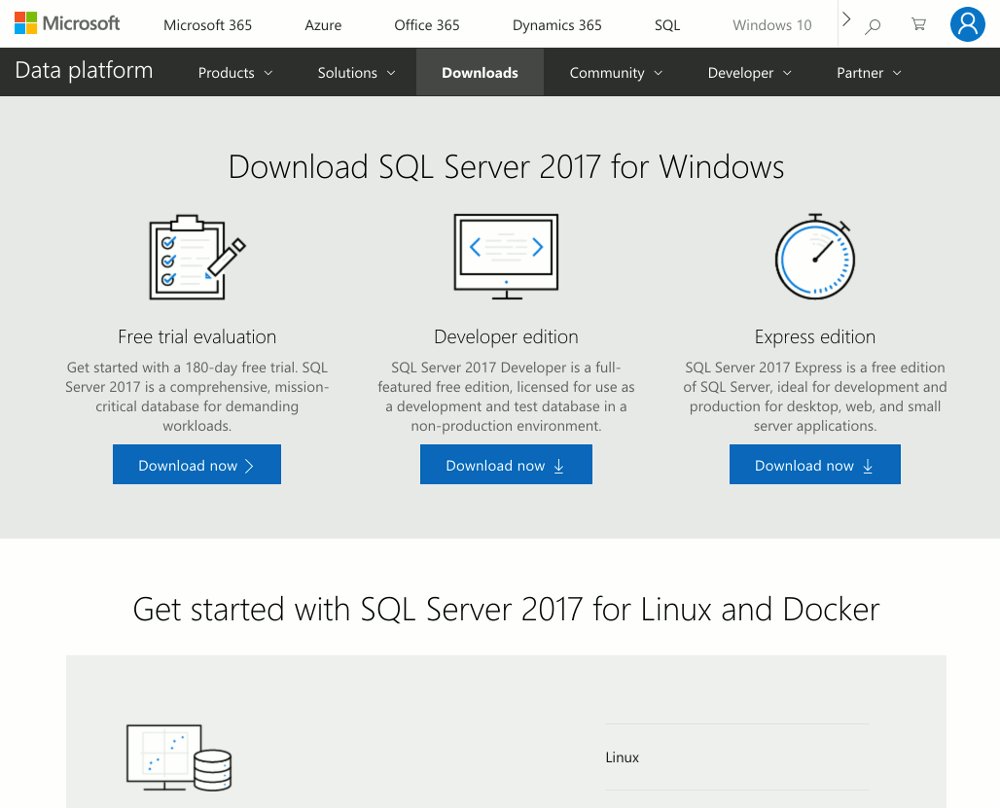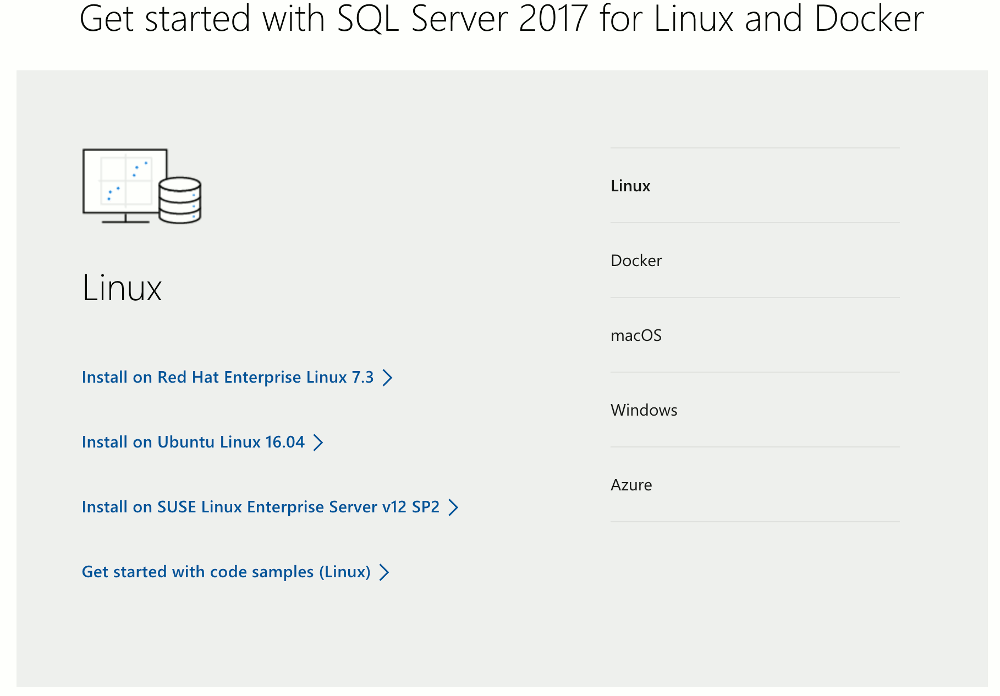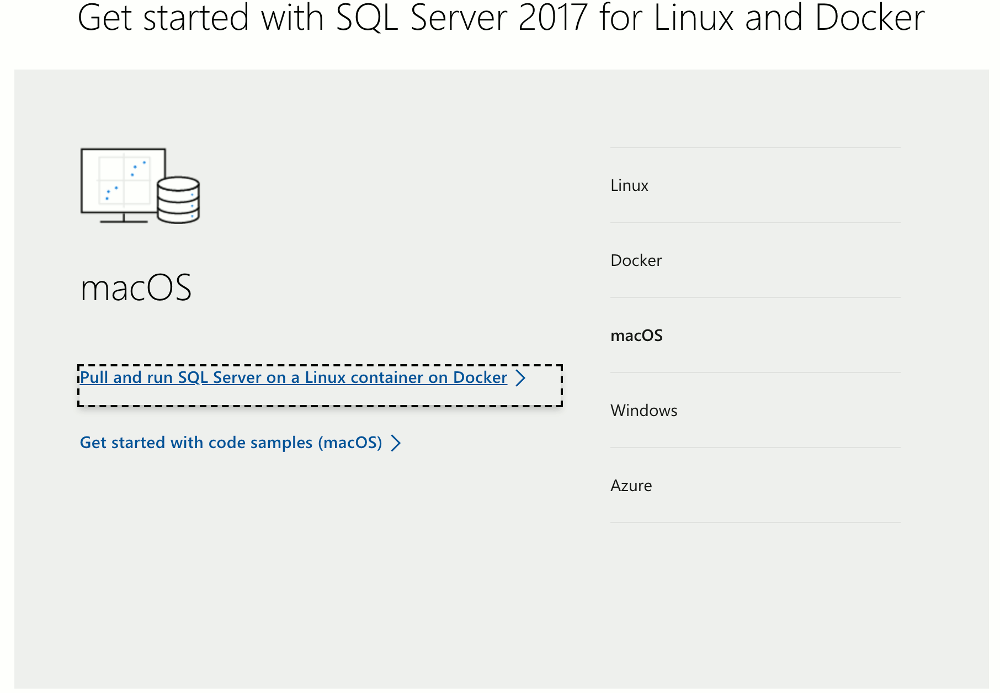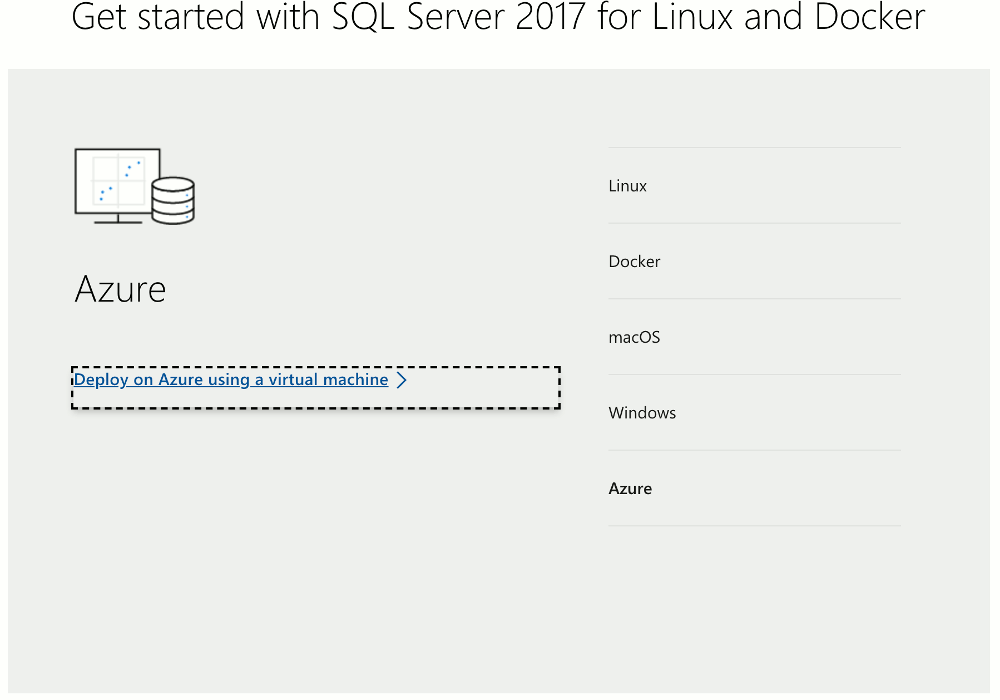SQL Server 2017 Installation
You have several options when it comes to installing SQL Server 2017. This largely depends on your operating system, which services you require, and which edition of SQL Server you choose.
Now that SQL Server is available on Linux and Docker, there are more options available when it comes to installing it. But don't let this confuse you — your operating system will largely dictate where to start.
The first place to start is on the SQL Server download page. The following is an explanation of the options on that page.
-
Windows
If you need the Standard or Enterprise edition of SQL Server, download the Free trial evaluation (you can work out the licencing details later).
If you're a developer who needs access to the full functionality of the Enterprise Edition, choose the (free) Developer Edition. This will immediately download the installer file.
If you have a small scale production application with very basic needs, then the Express Edition should be fine.
Once you've downloaded the installation file, you can install SQL Server by double-clicking the file. Here are detailed instructions explaining how to install SQL Server on Windows (it also includes how to install SSMS — a management tool for SQL Server).
-
Linux
If you use Linux, the option you choose here will depend on which Linux distribution you're running.
Each link here leads to a different Microsoft technical article that explains the exact steps you need to perform in order to install SQL Server on your distribution.
Basically, it's just a matter of running a bunch of commands in a terminal.
-
Mac
Clicking the macOS option will lead you to a Microsoft technical article that explains how to install SQL Server 2017 on your Mac.
One of the prerequisites for this option is that you need to have Docker installed.
If the Docker bit confuses you, don't worry. I've written the following tutorials just for you:
-
Azure
SQL Server 2017 also has an option for deploying SQL Server on Azure using a virtual machine. This is a cloud service that gives you a choice of operating systems to deploy SQL Server to (Windows Server, Red Hat Enterprise Linux, SUSE Linux Enterprise Server, and Ubuntu Linux).
So go through the steps as outlined for your operating system. Once you've installed SQL Server for your operating system, the next step is to decide on which management tool/s you'd like to use. Next, we'll look at the most common SQL Server management tools.



